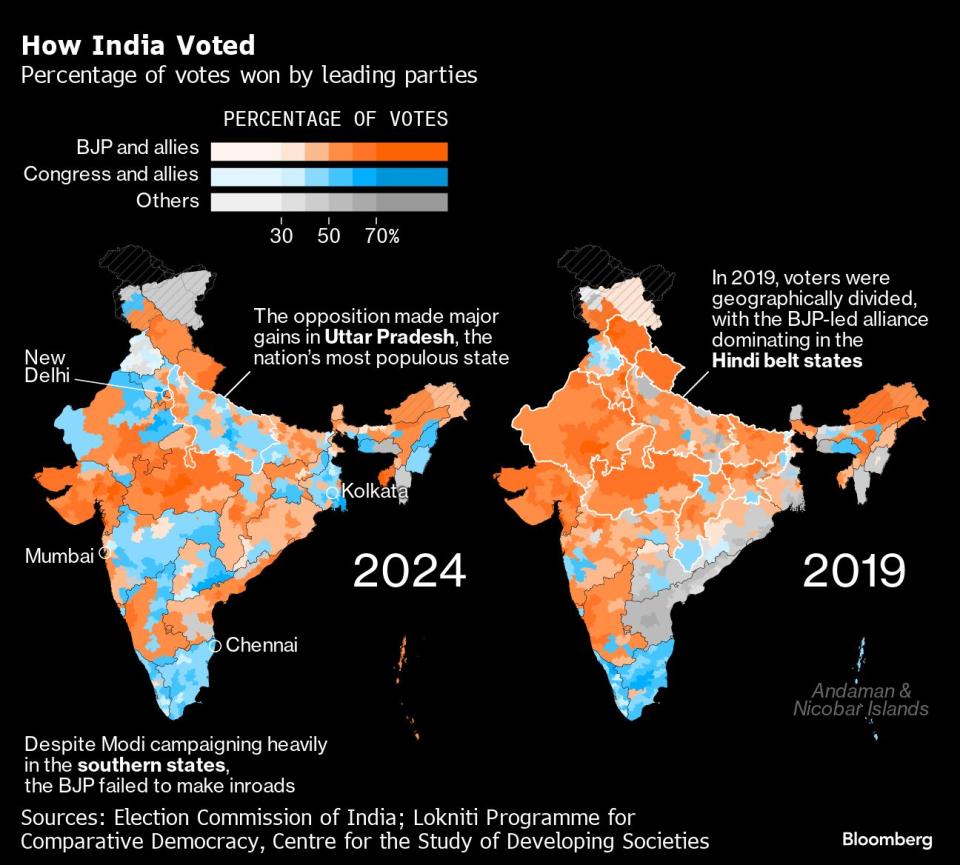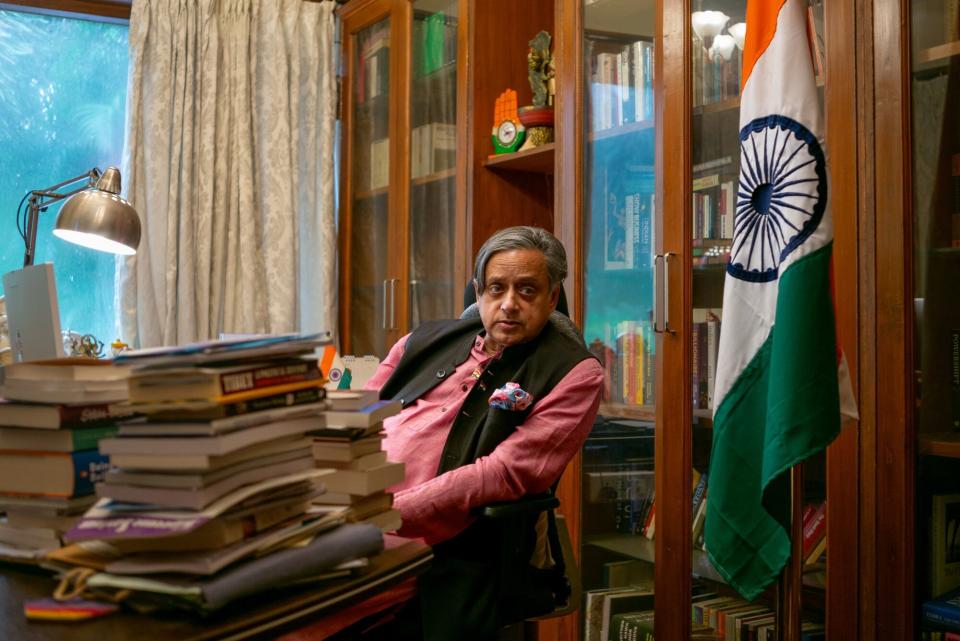Modi’s BJP ‘Shaken’ by Stronger Opposition, Says Congress Leader
(Bloomberg) -- Prime Minister Narendra Modi and other ruling party leaders have been rattled by India’s newly emboldened opposition, which now plans to use its expanded presence in parliament to challenge the Bharatiya Janata Party on multiple fronts, a senior opposition leader said.
Most Read from Bloomberg
Kamala Harris Is Having a Surprise Resurgence as Biden’s Campaign Unravels
Singapore Couples Are Marrying Earlier to Buy Homes, Leading Some to Regret
Biden’s Fourth of July Shrouded by Pressure to Drop 2024 Bid
Stocks Up as Jobs Fuel ‘Get On With It’ Fed Calls: Markets Wrap
Shashi Tharoor, a senior member of the Indian National Congress and 15-year veteran of the lower house of parliament, the Lok Sabha, said BJP leaders appeared “shaken” by a fiery parliamentary speech this week by opposition leader Rahul Gandhi. He said the speech signals the presence of a more forceful opposition in India for the first time since Modi took power a decade ago.
“They’re not used to it. They have to get used to it,” Tharoor said of the BJP during an interview in New Delhi on Wednesday. “We’ve seen the government’s response in Mr. Modi’s speech, so you know where the battle lines have been drawn.”
Tharoor’s comments come one month after India’s election results showed the Congress-led opposition alliance delivering a surprise setback to the BJP that denied the ruling party a parliamentary majority for the first time since it came to power in 2014. The outcome forced the BJP to govern with a coalition and gives the opposition more avenues to challenge Modi’s agenda.
Earlier this week, Gandhi, in his maiden speech as leader of the opposition in parliament, accused Modi and his party of spreading violence and hate in India and said the ruling party had failed to create jobs for millions of young people. Gandhi is the first person to occupy the opposition leadership post in a decade.
“It certainly struck a lot of chords within parliament and outside of it,” Tharoor said. “It also, shall we say, clearly got on the nerves of a few people,” he added.
Several BJP leaders in parliament, including Modi, stood up and objected to Gandhi’s remarks at the time, and parts of the speech were later expunged by the parliament.
Modi told lawmakers in response that “it is an issue of concern that the entire Hindu community has been called violent.” He described the Congress party as a “parasite” and accused Gandhi of “childish behavior.”
Tharoor said the opposition will now use its strength to push for more substantive debate on a range of issues. He also expects more bills to be referred to standing committees for consultation with its members, rather than being rammed through the legislature without much discussion.
The opposition is pushing for more discussion on four issues it’s frequently raised in its campaign, Tharoor said: high unemployment, the rising cost of living, ethnic violence in the eastern state of Manipur and the India-China border dispute.
“We want the government to treat the opposition with the respect that its numbers deserve,” he said.
Tharoor said the BJP’s ruling coalition looks stable for the moment, and said he expects it to remain so for at least a year given the reliance of smaller partners on the ruling party. He said one partner, the Telugu Desam Party, appears to be awaiting financial support for its home state of Andhra Pradesh. Another, the Janata Dal (United), needs the BJP’s help in state elections later this year, he said.
“But I don’t think anyone even within the BJP can confidently speak of a five-year stable government as they have been doing without a certain level of bluster or insincerity built into it because these equations can always change at any time,” he said.
Despite the opposition’s resurgence, Modi’s BJP continues to hold the largest number of seats by far in India’s lower house, with 240 out of 543. Close Modi confidantes continue to run top ministries, including the powerful external affairs, home and finance ministries. The BJP still holds the influential Speaker of the Lok Sabha post, despite speculation it might go to a coalition partner.
Still, the opposition’s expanded presence in parliament gives it a mandate to more vocally put forward its views and present an alternative agenda to the ruling party, said Sandeep Shastri, a political scientist and vice chancellor of Jagran Lakecity University in Bhopal.
“You have an opposition which was visibly much more strident in its criticism of the government,” he said. “In terms of the verbal language and the body language, you see the impact of that change very, very visibly.”
--With assistance from Preeti Soni.
Most Read from Bloomberg Businessweek
Dragons and Sex Are Now a $610 Million Business Sweeping Publishing
For Tesla, a Smaller Drop in Sales Is Something to Celebrate
The Fried Chicken Sandwich Wars Are More Cutthroat Than Ever Before
©2024 Bloomberg L.P.




